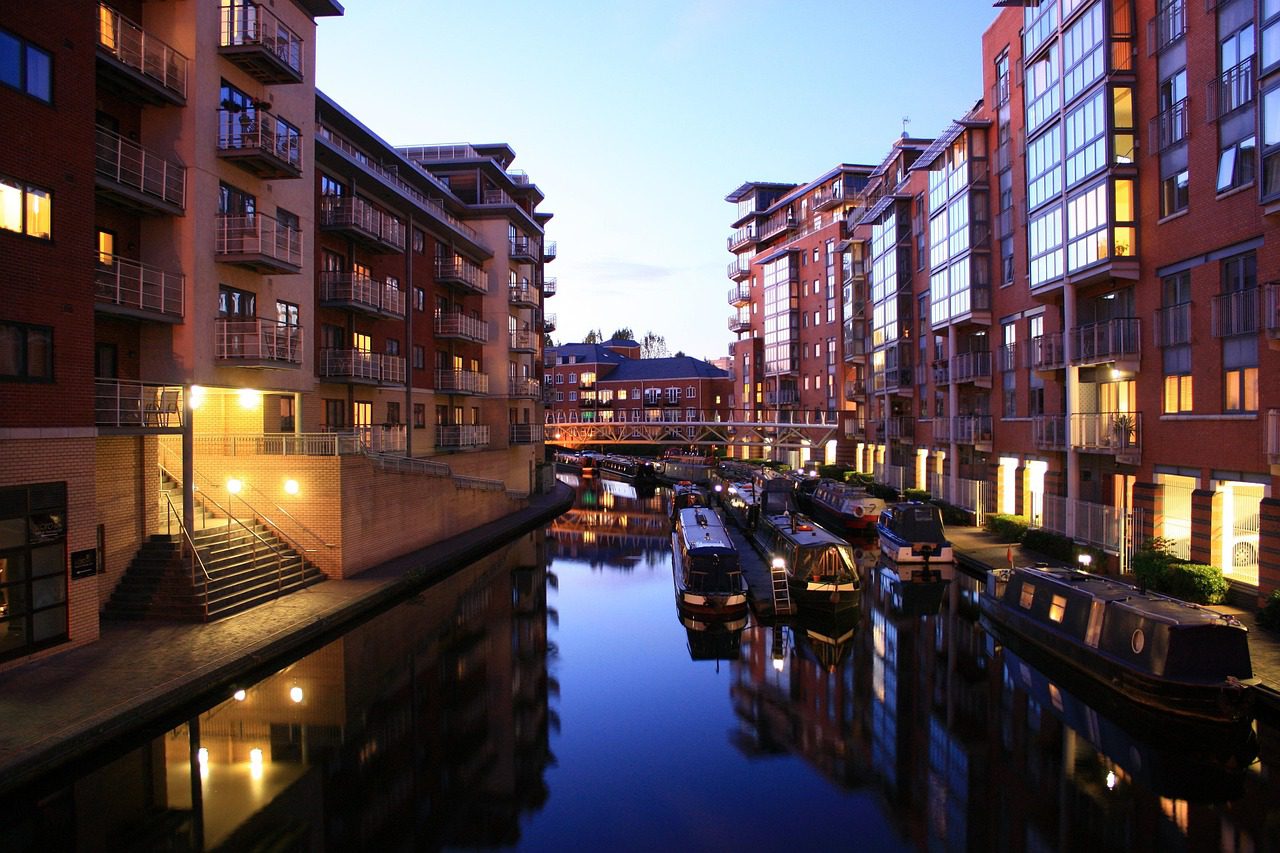As Britain’s housing market enters a new phase, shaped by shifting migration patterns, regional regeneration and a stubborn housing shortage, a more pressing question emerges for investors at home and abroad: where, in today’s UK, does it still make sense to buy?
To answer that, I sat down with Liam Smith, Partner and Head of UK Residential Investment at global property consultancy, Knight Frank. The business boasts over 500 offices worldwide, offering services across residential, commercial, and rural real estate. Based in Birmingham, Liam brings over 15 years of experience and a data-led approach to property investing.
Let’s unpack the key cities to watch and where to buy property in the UK based on different deposit sizes: £30k, £50k, and £75k.
Note: This article is adapted from a conversation originally featured on the APW Property Podcast.

Callum Williamson hosts the weekly APW Property Portfolio podcast.
Where to Buy Property in the UK Right Now
London may still dominate headlines, but Liam argues that regional UK cities like Birmingham, Manchester, and Leeds are where the real growth is happening.
“We’ve chosen Birmingham because we believe it’s the future hotspot for the UK,” says Liam. “There’s massive population growth, an undersupply of residential property, and huge infrastructure projects like HS2 bringing employers and people into the city.”
HS2 is designed to dramatically cut travel times between London and key regional cities and is currently the largest infrastructure project in Europe. Set to complete its leg to Birmingham between 2029 and 2033, the railway is already serving as a catalyst for transformation, drawing major employers away from London and into the Midlands — such as HSBC, PwC, and BT — all of which have relocated significant operations to the city in recent years.
In Birmingham alone, around 7,000 people move from London every year, yet housing supply isn’t even close to meeting government targets. Only 19,000 apartments currently have planning permission for the next decade, keeping supply significantly constrained.
Other key cities include:
- Manchester: Strong tenant demand, especially in premium apartments.
- Leeds: A booming financial services sector, high graduate retention, and walkable city centre living.
- Derby & East Midlands: Ticking all the boxes for regeneration, jobs, and affordability.
Choosing the Right Location for Your Real Estate Investments

Birmingham’s canals reflect a city in transformation — where industrial heritage meets modern regeneration.
It helps to validate your investment decisions based on the PIE framework: Population, Infrastructure, Employment. If a city has strong job creation, rising population and major regeneration or infrastructure projects underway, it’s likely a solid investment.
Cities like Birmingham and Leeds also benefit from high student numbers with strong graduate retention — a critical factor in sustaining long-term rental demand. Birmingham hosts 130,000 students and 42% stay in the city after graduation.
This creates a reliable and growing tenant base, particularly for one- and two-bedroom flats in city-centre locations — exactly the kind of property that performs well in terms of occupancy, yield, and capital growth.
What to Buy: From £30K to £75K Deposits

Thinking about your goals, budget and lifestyle needs can help when it comes to choosing a property location.
1. £30,000 Budget (~£100k property)
At this level, patience is key.
“You might be tempted to jump in quickly, but with lower-value properties, capital growth is often limited,” says Liam.
Still, there are options in Wales or the North, where yields are higher — though management can be more intensive. Expect a more hands-on investment and lower liquidity.
2. £50,000 Budget (~£200k property)
This opens up more attractive markets.
You could consider:
- City-centre apartments in Birmingham or Leeds
- One-bed or two-bed flats near universities or business hubs
These properties tend to attract recent graduates and young professionals looking for walkable locations close to work and nightlife.
3. £75,000 Budget (~£300k property)
This budget allows you to access premium, low-hassle investments in more central and established areas.
“This is the sweet spot for expats,” Liam says. “You can buy a high-quality, centrally located apartment with minimal management and long-term capital growth potential.”
Key Takeaways for Expat Investors
Expats face unique challenges when investing from abroad, so it helps to aim for low maintenance opportunities to avoid additional costs. With so many opportunities across the UK, knowing where to buy comes down to research, location fundamentals, and realistic expectations:
- Buy for the mid-to-long term, not short-term gains.
- Avoid under-researched areas, even if yields look attractive on paper.
- Work with experienced, trustworthy partners who can manage and maintain your asset.
- City-centre 1–2 beds remain a solid strategy, especially in under-supplied cities.
- Focus on the fundamentals: Stick to the PIE framework — Population, Infrastructure, Employment — and look for walkable, central, tenant-ready properties that suit your long-term goals
“The UK is still a very robust market,” Liam adds. “Even if you get a blip, over 10–15 years, values tend to rise. It’s a resilient, proven environment for investment.”
Want to learn more?
If you want to find out more about how to get your property investment funded, read our latest article: How to Get a Mortgage in the UK as an Expat
You can also check out our ebook: 10 Steps to 10k per Month with UK Property that breaks down the fundamentals of UK property investing into a clear, actionable guide.

With 14 years in UK property, Callum Williamson specialises in value-add conversions and portfolio growth. Starting with city flats, he expanded into HMOs and international assets. A passionate investor and co-author of The Expat Property Playbook, Callum helps expatriates build long-term wealth through smart, sustainable property strategies.
